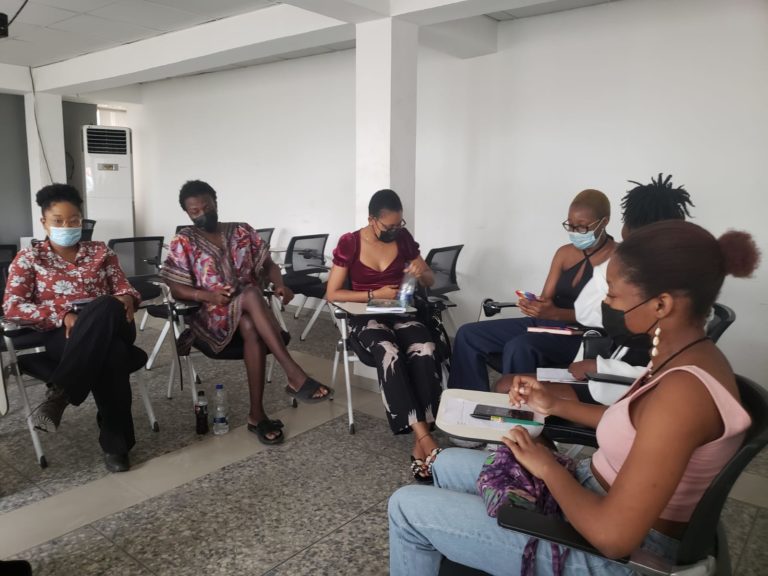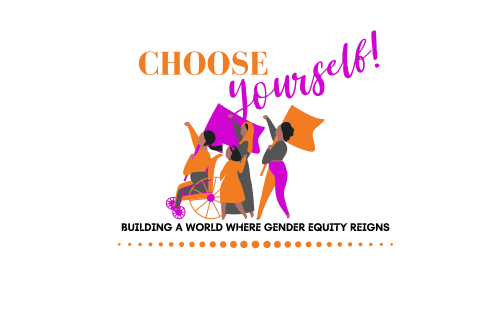This year in partnership with Pro-choice Nigeria, we expanded our Girl Talk spaces to Nigeria as part of an ongoing vision of creating as many feminist organizing spaces as possible.
Our second talk happened in Lagos on March 13 under the theme “ Building bridges across feminisms”. I was mostly satisfied with how young the women in the space were. Lately, my biggest wish is to reach as many young women and girls ( from the age of 13) as possible and offer them the tools and resources needed to be part of women’s movements. I was also satisfied with how gender-diverse space was. It’s been also our biggest priority to make sure the marginalized are centered among us and really catered for
Identifying the types of feminisms
During the workshop facilitated in different groups, These types of feminisms were identified:
Feminism stuck in the “ equality between man and woman “ phase. Participants identified the lack of intersectionality. Queer, trans women, and disabled women are often left out of leading conversations about Nigerian women. This type of feminism is also rooted in women’s empowerment and the girl boss culture dominates without any awareness of class reality. Participants shared the disconnect between upper-class and working-class feminists. Privileged feminists with social capital take up space and forget to be in community with impoverished feminist organizers who are the average Nigerian woman
Ageism was also identified as a very big part of feminisms across Nigerian women. Because of cultural tradition where the youth are often underestimated, most feminist spaces on the ground don’t offer the intergenerational needed spaces for young feminists to be in spaces with established feminists who are in the spotlight or occupy the most visible feminist spaces
How to build bridges towards a more intersectional feminism
The second part of the workshop was to then identify how to build bridges between the feminisms on the ground. We started by unpacking what would be a feminism that serves every woman in Nigeria. We highlighted that intersectionality requires that feminism centers on women who don’t fit the idea of race or other factors. These are practical steps that were suggested:
Offering spaces where women can collectively grow and build communities. Spaces where they can collectively educate each other. Participants celebrated Girl talk spaces as one way to sustain education within communities as a liberatory practice
Multiply Accountable offline spaces where feminists across class, and their sexual identities can channel solidarity ad be accountable to each other
Scatter the “ women empowerment” narratives within women’s struggles and start afresh with intersectionality politics.
By Judicaelle Irakoze
ED and Founder of Choose Yourself


